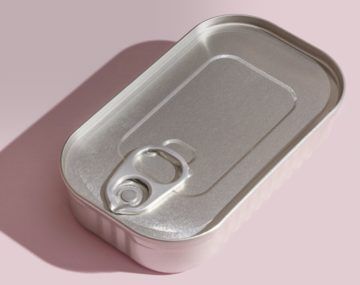Sean Trott in Psyche:
 Some words are much more frequent than others. For example, in a sample of almost 18 million words from published texts, the word can occurs about 70,000 times, while souse occurs only once. But can doesn’t just occur more frequently – it’s also much more ambiguous. That is, it has many possible meanings. Can sometimes refers to a container for storing food or drink (‘He drinks beer straight from the can’), but it also doubles as a verb about the process of putting things in a container (‘I need to can this food’), and as a modal verb about one’s ability or permission to do something (‘She can open the can’). It even occasionally moonlights as a verb about getting fired (‘Can they can him for stealing that can?’), and as an informal noun for prison (‘Well, it’s better than a year in the can’).
Some words are much more frequent than others. For example, in a sample of almost 18 million words from published texts, the word can occurs about 70,000 times, while souse occurs only once. But can doesn’t just occur more frequently – it’s also much more ambiguous. That is, it has many possible meanings. Can sometimes refers to a container for storing food or drink (‘He drinks beer straight from the can’), but it also doubles as a verb about the process of putting things in a container (‘I need to can this food’), and as a modal verb about one’s ability or permission to do something (‘She can open the can’). It even occasionally moonlights as a verb about getting fired (‘Can they can him for stealing that can?’), and as an informal noun for prison (‘Well, it’s better than a year in the can’).
This multiplicity of possible uses raises a question: how do can, souse and other words each end up with the particular numbers of meanings they have? The answer could rest in fundamental, competing forces that shape the evolution of languages.
More here.
